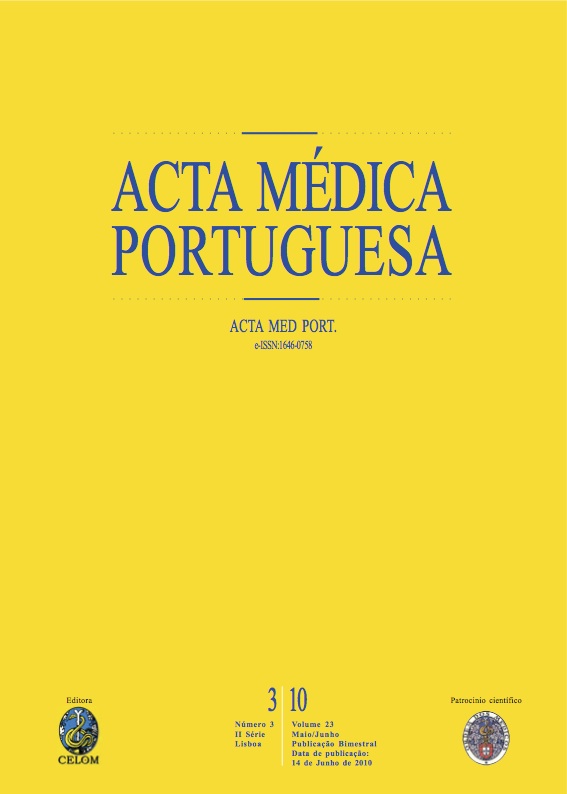Bioethical reflections about the situation of the elderly and their families.
DOI:
https://doi.org/10.20344/amp.630Abstract
The progresses of medicine, by increasing longevity, as well as in geriatrics, by improving the elderly's quality of life led to an understanding of old age based on the therapeutic metaphor. This fact, imbued with positive consequences, yet culturally reinforced by the ideology of perfect health, caused an increasing medicalization of old age, considered a disease to be cured. One of the first perceptions of the human beings' ageing process is gaining awareness of their vulnerability. Individuals start to realize that they no longer have the energy and vitality they once had and, therefore, are more vulnerable and fragile in face of biological or psychological factors tending towards the imbalance. Illness is the exact metaphor of vulnerability and suffering is the bitter face of that experience. The human being is a being destined to die. The death process is part of the life event. For life to be possible, it is necessary for death to take place continuously. During the ageing process, the human being is confronted with other dimensions that may have already been forgotten, due to the feeling of power and Independence experienced during youth and adult life. Today, being old is a problem! In the course of time, people reached naturally old age, for ageing is a part of life. But, in our days, for the first time in History, being old has become a problem. The bottom-line ethical issue is, therefore, socio-cultural. And this because, on one hand, there isn't a place for the elderly in the contemporary society as it used to happen in pre-modern social contexts, and on the other hand, the culture itself does no longer supply (as before) additional symbolic references to help them face this new step of their lives. As such, the principles of Bioethics - autonomy, beneficence, nonmaleficence and justice - could pave the way towards ethical guidelines that could help third age. General Practice/Family Medicine, as a specialty based on globality and continuity of care, can and should represent an important factor of social integration of the elderly in the community, while fostering their autonomy and reducing their institutionalization in order to achieve a greater quality of life.Downloads
Downloads
How to Cite
Issue
Section
License
All the articles published in the AMP are open access and comply with the requirements of funding agencies or academic institutions. The AMP is governed by the terms of the Creative Commons ‘Attribution – Non-Commercial Use - (CC-BY-NC)’ license, regarding the use by third parties.
It is the author’s responsibility to obtain approval for the reproduction of figures, tables, etc. from other publications.
Upon acceptance of an article for publication, the authors will be asked to complete the ICMJE “Copyright Liability and Copyright Sharing Statement “(http://www.actamedicaportuguesa.com/info/AMP-NormasPublicacao.pdf) and the “Declaration of Potential Conflicts of Interest” (http:// www.icmje.org/conflicts-of-interest). An e-mail will be sent to the corresponding author to acknowledge receipt of the manuscript.
After publication, the authors are authorised to make their articles available in repositories of their institutions of origin, as long as they always mention where they were published and according to the Creative Commons license.









